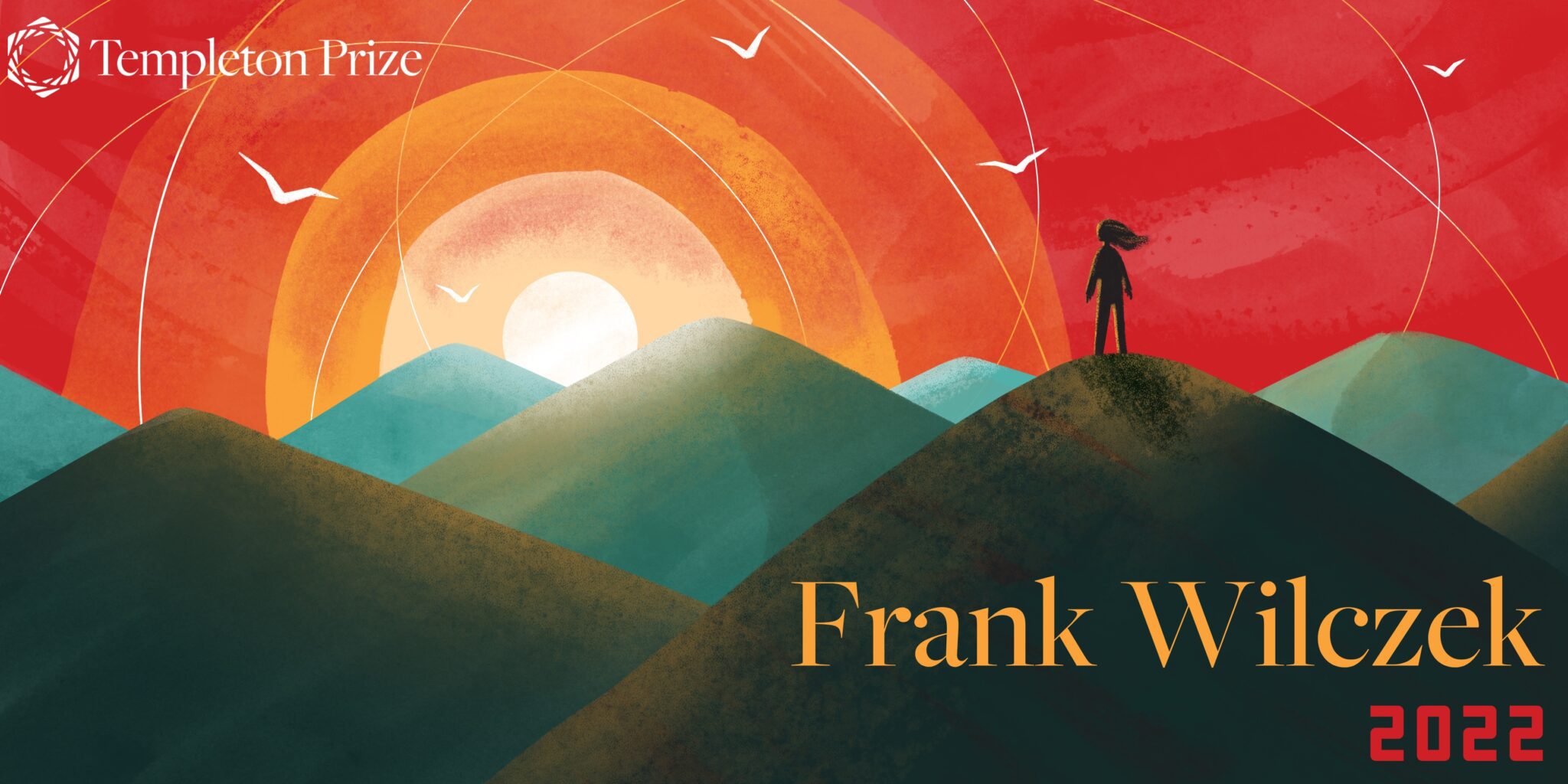In 1973, the first Templeton Prize was given to Mother Teresa. In 2023, we celebrate the 50th anniversary of this award. Over the next 52 weeks, we will highlight each of our laureates and reflect on their impact on the world. From humanitarians and saints to philosophers, theoretical physicists, and one king, the Templeton Prize has honored extraordinary people. Together, they have pushed the boundaries of our understanding of the deepest questions of the universe and humankind’s place and purpose within it, making this (we humbly think) the world’s most interesting prize.
Dr. Frank Wilczek is a Nobel Prize-winning theoretical physicist and author, whose boundary-pushing investigations into the fundamental laws of nature have transformed our understanding of the forces that govern our universe.
Born on May 15, 1951, in Mineola, New York, Frank Wilczek has emerged as one of the preeminent theoretical physicists of his generation. As a child, Wilczek developed a fondness for numbers and puzzles of all kinds. This led him to study mathematics at the University of Chicago, where he earned his bachelor’s degree at the age of 18. He swiftly advanced in the realm of academia, obtaining his Ph.D. in physics from Princeton University in 1974.
His early contributions to the field were nothing short of groundbreaking. In collaboration with David Gross and David Politzer, Wilczek formulated the theory of asymptotic freedom in quantum chromodynamics (QCD). This pivotal work, for which they were awarded the Nobel Prize in Physics in 2004, illuminated the behavior of quarks and gluons, the elementary particles that constitute protons, neutrons, and other strongly interacting matter. Wilczek’s research extends across a spectrum of theoretical physics, including the study of condensed matter physics, axions, and dark matter.
Outside of the lab, Wilczek is a prolific author and storyteller. With the gift of translating the arcane into everyday language, his books, including The Lightness of Being and A Beautiful Question delve into the complexities of physics and bridge the gap between the scientific community and the public. Wilczek has also shared his insights across digital audiences on On Being with Krista Tippett, the World Science Festival, and Closer to Truth. His ability to make complex concepts accessible with humor and elegance places him alongside Nobel winner Richard Feynman, who demystified quarks with a rubber band, and 2000 Templeton Prize Laureate Freeman Dyson, who explored the universe with a poet’s eye.
Wilczek was awarded the Templeton Prize in 2022 in recognition of his achievements in investigating both the technical aspects of physics and the broader questions about the universe’s meaning and appreciation for the beauty and complexity of the cosmos. A ceremony was held on November 2, 2022 at The Times Center in New York City and included remarks by Andrew Serazin, former president of the Templeton World Charity Foundation, a lecture given by Dr. Wilczek, and a conversation with author and journalist Derek Thompson of The Atlantic.
“Throughout Dr. Wilczek’s philosophical reflections, there is a spiritual quality to his ideas. By uncovering a remarkable order in the natural world, Dr. Wilczek has come to appreciate different ways of thinking about reality, and through his written work, he has invited all of us to join him in the quest for understanding. When we come face to face with the beauty that Dr. Wilczek describes, we can’t help but wonder about humankind’s place and purpose in the universe.”
—Heather Templeton Dill
